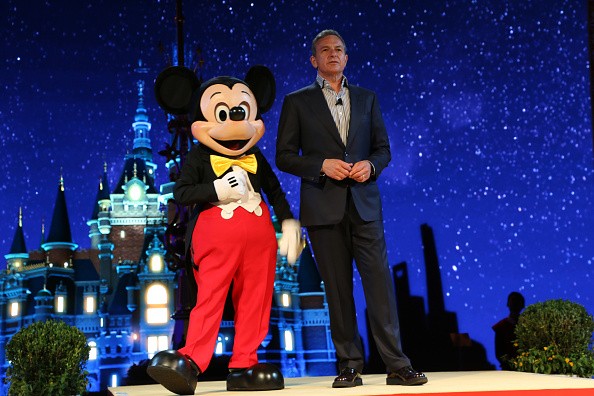Walt Disney chief executive Robert Iger said on Friday that China scrapping its controversial one-child policy would greatly benefit the U.S. entertainment giant as it prepares to open a theme park in Shanghai.
"Thanks for sending us more kids," Iger joked during a business meeting at the University of Southern California in Shanghai, adding that he wanted to write a thank-you note to Chinese leaders.
The Communist Party of China (CPC) announced the end to its more than 30-year one-child policy on Thursday, enabling around 90 million families in the world's most populous nation to have a second child.
China's total population is currently around 1.36 billion, according to official data. It is expected to expand to an estimated 1.45 billion by 2030.
Iger said it is "good timing" for Disney as now there will be more Chinese children, which in turn means more younger visitors to the company's amusement park in Shanghai in the future.
Shanghai Disneyland, a joint venture between Walt Disney Co. and Chinese partner Shanghai Shendi Group, started construction on the $5.5 billion park in 2011. The opening was originally slated for this year, but Disney has pushed it back to spring of 2016.
Ahead of the launch, Disney has opened a store in Shanghai as well as entered into a partnership with Japanese fashion retailer Uniqlo to offer a clothing line through its flagship store in the city.
Disney, whose businesses range from movies to merchandise, believes China has strong potential regardless of its family planning policies, Iger said.
"China is a good market, policy change or not," he said. "Yes, we love kids of course, but we love everybody."
Iger's remarks were received warmly by stock investors, causing stocks of listed Chinese companies offering children's products to rise up as much as 10 percent in the stock market.
"Dairy and baby-related stocks are all benefiting, and I expect real estate, education and health care to also get some support," said Zhang Yanbing, an analyst at Zheshang Securities in Shanghai.
Some analysts, however, warned that the gains might be short-lived.
Zhang Qi, an analyst from Haitong Securities, told AFP that the actual effect of the policy change to companies is still unclear.
"The easing of the one-child policy might not have such a big effect on the birth rate as it's difficult to reverse the current population structure," he said.



























